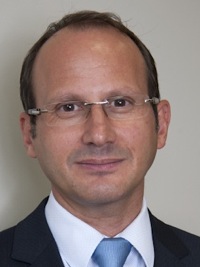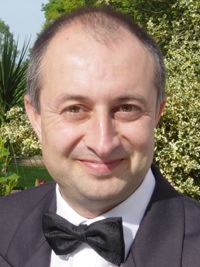Dr. James Davies
Dr. James Davies is a co-founder of CEP. He graduated from the University of Oxford in 2006 with a PhD in social and medical anthropology. He is a senior lecturer in social anthropology and psychotherapy at the University of Roehampton and has practiced as a psychotherapist in organisations such as MIND and the NHS.
James has written widely in academe and has delivered lectures at many universities including Harvard, Oxford, Brown, UCL, Columbia (New York), and The New School (New York). James has also written for The Times, The New Scientist, The Guardian, The Daily Mail, Harvard Divinity Bulletin and Salon. He is author of three books including Cracked: why psychiatry is doing more harm than good (2013).
Professor Peter C. Gøtzsche
Professor Peter C Gøtzsche graduated as a Master of Science in biology and chemistry in 1974 and as a physician 1984. He is a specialist in internal medicine; worked with clinical trials and regulatory affairs in the drug industry 1975-1983, and at hospitals in Copenhagen 1984-95. With about 80 others, he helped start The Cochrane Collaboration in 1993 with the founder, Sir Iain Chalmers, and established The Nordic Cochrane Centre the same year. He became professor of Clinical Research Design and Analysis in 2010 at the University of Copenhagen.
Peter has published more than 70 papers in “the big five” (BMJ, Lancet, JAMA, Ann Intern Med and N Engl J Med) and his scientific works have been cited over 15,000 times. Peter is also the author of the following books: Deadly psychiatry and organised denial (2015), Deadly medicines and organised crime: How big pharma has corrupted health care (2013, winner of the British Medical Association’s Annual Book Award in the category Basis of Medicine in 2014), Mammography screening: truth, lies and controversy (2012), Rational diagnosis and treatment: evidence-based clinical decision-making (2007)
Professor Peter C. Gøtzsche is Director of the Nordic Cochrane Centre. Peter has published more than 50 papers in “the big five” (BMJ, Lancet, JAMA, Ann Intern Med and N Engl J Med) and his scientific works have been cited over 10,000 times. He is author of the following books: Rational Diagnosis and Treatment. Evidence-Based Clinical Decision-Making (2007), Mammography Screening: truth, lies and controversy (2012), Deadly Medicines and Organised Crime: How big pharma has corrupted health care (2013).
Peter has an interest in statistics and research methodology. He is a member of several groups publishing guidelines for good reporting of research and has co-authored CONSORT for randomised trials (www.consort-statement.org), STROBE for observational studies (www.strobe-statement.org), PRISMA for systematic reviews and meta-analyses (www.prisma-statement.org), and SPIRIT for trial protocols (www.spirit-statement.org). Peter was one of the editors of the Cochrane Methodology Review Group 1997-2014.
Dr. Anne Guy
 Dr. Anne Guy UKCP Reg; BACP (Accred) is a psychotherapist currently in private practice. Having originally graduated from the University of Warwick with a BA in Philosophy and Sociology she worked for 20 years as a senior manager in both financial services and the third sector in various operational and change management roles.
Dr. Anne Guy UKCP Reg; BACP (Accred) is a psychotherapist currently in private practice. Having originally graduated from the University of Warwick with a BA in Philosophy and Sociology she worked for 20 years as a senior manager in both financial services and the third sector in various operational and change management roles.Professor Peter Kinderman
 Peter Kinderman is Professor of Clinical Psychology at the University of Liverpool, with over 200 academic staff (32 of them professors) comprising psychiatrists, general practitioners, clinical and other applied psychologists, sociologists, public health physicians, nurses, sociologists and academics.
Peter Kinderman is Professor of Clinical Psychology at the University of Liverpool, with over 200 academic staff (32 of them professors) comprising psychiatrists, general practitioners, clinical and other applied psychologists, sociologists, public health physicians, nurses, sociologists and academics.
Professor Kinderman’s research activity and clinical work has involved studying serious and enduring mental health problems such as paranoid beliefs and hallucinations, psychological models of mental health and the effectiveness of psychosocial interventions, alternatives to traditional psychiatric and diagnostic approaches and how psychological science can assist public policy in health and social care.
Professor Kinderman has an honorary position as Consultant Clinical Psychologist with Mersey Care NHS Trust. He is currently a member of the UK Office for National Statistics’ Technical Advisory Group for the Measuring National Well-being Programme, and served twice as Chair of the British Psychological Society’s Division of Clinical Psychology. Professor Kinderman was formerly a member of the UK Department of Health’s Mental Health Advisory Board, served as a member of the Health Professions Council’s Professional Liaison Group for applied psychology and sat on the Advisory Panel of the European Union’s Fundamental Rights Agency. Professor Kinderman was also a consultant to the BBC Headroom campaign and has contributed to several broadcasts in the field of mental health, most notably hosting a two-episode BBC Horizon piece exploring the role of diagnosis.
Professor Joanna Moncrieff
 Joanna Moncrieff is Professor of Critical and Social Psychiatry at University College London and is also a practising consultant psychiatrist. She has written articles critical of various psychiatric drug treatments, including lithium, antidepressants and neuroleptics. Joanna has also written about the adverse influence of the pharmaceutical industry on psychiatry. She is also one of the founders and the co-chair of the Critical Psychiatry Network.
Joanna Moncrieff is Professor of Critical and Social Psychiatry at University College London and is also a practising consultant psychiatrist. She has written articles critical of various psychiatric drug treatments, including lithium, antidepressants and neuroleptics. Joanna has also written about the adverse influence of the pharmaceutical industry on psychiatry. She is also one of the founders and the co-chair of the Critical Psychiatry Network.
Joanna’s research consists of an analysis of all aspects of psychiatric drug treatment. She is interested in the nature and function of diagnosis in modern psychiatric practice, and in the history, politics and philosophy of psychiatry more generally. She has also written three books: The Bitterest Pills, published by Palgrave Macmillan, The Myth of the Chemical Cure, published by Palgrave Macmillan, and A Straight Talking Introduction to Psychiatric Drugs, published by PCCs books.
Professor John Read
 Dr John Read is Professor of Clinical Psychology at the University of East London.
Dr John Read is Professor of Clinical Psychology at the University of East London.
John worked for nearly 20 years as a Clinical Psychologist and manager of mental health services in the UK and the USA, before joining the University of Auckland, New Zealand, in 1994, where he worked until 2013.
He has published over 130 papers in research journals, primarily on the relationship between adverse life events (eg child abuse/neglect, poverty etc.) and psychosis. He also researches the negative effects of bio-genetic causal explanations on prejudice, the opinions and experiences of recipients of anti-psychotic and anti-depressant medication, and the role of the pharmaceutical industry in mental health research and practice.
John is on the Boards of: Hearing Voices Network, the UK branch of the International Society for Psychological and Social Approaches to Psychosis, and the International Institute for Psychiatric Drug Withdrawal.
John is the Editor of the ISPS’s scientific journal ‘Psychosis’.
Dr. Sami Timimi
 Dr. Sami Timimi is a consultant child and adolescent psychiatrist and director of postgraduate education in the NHS in Lincolnshire and a visiting professor of child and adolescent psychiatry at the University of Lincoln. He writes from a critical psychiatry perspective on topics relating to child and adolescent mental health and has published many articles on many subjects including eating disorders, psychotherapy, behavioural disorders and cross-cultural psychiatry.
Dr. Sami Timimi is a consultant child and adolescent psychiatrist and director of postgraduate education in the NHS in Lincolnshire and a visiting professor of child and adolescent psychiatry at the University of Lincoln. He writes from a critical psychiatry perspective on topics relating to child and adolescent mental health and has published many articles on many subjects including eating disorders, psychotherapy, behavioural disorders and cross-cultural psychiatry.
Sami has authored four books, Pathological Child Psychiatry and the Medicalization of Childhood (2002), Naughty Boys: Anti-Social Behaviour, ADHD and the Role of Culture (2005), Misunderstanding ADHD: A Complete Guide for Parents to Alternatives to Drugs (2007), and A Straight Talking Introduction to Children’s Mental Health Problems (2009). He co-edited with Begum Maitra Critical Voices in Child and Adolescent Mental Health (2006), Liberatory Psychiatry: Philosophy, Politics, and Mental Health with Carl Cohen, (2008) and Rethinking ADHD: From Brain to Culture with Jonathan Leo (2009). He has co-authored with Brian McCabe and Neil Gardner The Myth of Autism: Medicalising Men and Boys’ Social and Emotional Competence (2010).
John Sandwich (Earl of Sandwich)
 John has been a cross bench member of the House of Lords since inheriting the title in May 1995 (elected by peers in November 1999). He is currently on the European Union Select Committee and its foreign affairs sub-committee. He is a member of several all-party groups including the Involuntary Tranquilliser Addiction group.
John has been a cross bench member of the House of Lords since inheriting the title in May 1995 (elected by peers in November 1999). He is currently on the European Union Select Committee and its foreign affairs sub-committee. He is a member of several all-party groups including the Involuntary Tranquilliser Addiction group.
He was a Board Member and Trustee of Christian Aid, 1999-2004, having served on the staff, 1972-86, as Information Officer and Research Officer. He was a freelance editor and consultant to international aid agencies from 1986 to 1995 (mainly Christian Aid, Save the Children, Anti-Slavery and CARE International). He was for nine years a Council Member of Anti-Slavery International. He was on the International and Development Affairs Committee at Church House 1997-2000.
John divides his time between London and Mapperton in West Dorset, where he oversees agricultural and residential property, gardens and other tourist attractions. John was a Governor of Beaminster School and a managing trustee of St Francis School Hooke.
Melanie Davis
Melanie Davis has more than 25 years of experience as the manager of REST (Recovery Experience Sleeping Pills & Tranquilisers). REST offers a weekly support group, guidance, counselling and advocacy for people in Camden and Islington struggling with benzodiazepines and other z drugs. Set up by Mind in 1988, the service is now provided by the health and social care charity Change Grow Live.
Melanie has used her expertise to shape government policy as a contributor to the All-Party Parliamentary Group for Prescribed Drug Dependency and the Council for Evidence-Based Psychiatry. She has also contributed to several committees and reports on the issue of prescribed drug dependency. Her insights have been featured in national media, including BBC Newsnight.
Through her work with REST, Melanie has supported over 3000 people to safely withdraw from benzodiazepines. Examples of REST’s work form part of Public Health England’s framework on prescribed drug dependency published in 2022.
Luke Montagu
 Luke Montagu is an education and media entrepreneur. After graduating from Columbia University with a degree in film studies, he co-founded Kinexus Ltd in 1995, a corporate television production company focused on the IT sector. After selling Kinexus to Ideal Hardware plc, Luke co-founded and became CEO of Wide Learning Ltd, which grew rapidly to become one of the UK’s largest e-learning businesses, with investment from Reuters, GE Capital and JP Morgan among others.
Luke Montagu is an education and media entrepreneur. After graduating from Columbia University with a degree in film studies, he co-founded Kinexus Ltd in 1995, a corporate television production company focused on the IT sector. After selling Kinexus to Ideal Hardware plc, Luke co-founded and became CEO of Wide Learning Ltd, which grew rapidly to become one of the UK’s largest e-learning businesses, with investment from Reuters, GE Capital and JP Morgan among others.
In 2003 Luke co-founded the Met Film School, which he led as CEO until 2009. Based at Ealing Studios, the Met Film School is the UK’s largest private media college, with over 1000 students studying a range of MA, BA and shorter courses. He also co-founded a post-production as well as a film production business, and has executive produced a number of feature films. Luke now spends most of his time working on his family’s property business in Dorset. Luke is a trustee of the Dalai Lama Centre for Compassion and a co-founder of CEP.
The Bristol & District Tranquilliser Project
 The Bristol & District Tranquilliser Project is a Voluntary Sector organisation set up originally in 1985 to help those having problems with certain prescribed psychotropic medication (benzodiazepine tranquillisers/sleeping pills, other sleeping pills and antidepressants).
The Bristol & District Tranquilliser Project is a Voluntary Sector organisation set up originally in 1985 to help those having problems with certain prescribed psychotropic medication (benzodiazepine tranquillisers/sleeping pills, other sleeping pills and antidepressants).
We help people who are taking, who are considering taking or have recently withdrawn from this type of medication. We are mainly funded by the Bristol Clinical Commissioning Group (CCG) and we work closely with the CCG to achieve our objectives. We became a registered charity in 1996 and a company limited by guarantee in 2004.



